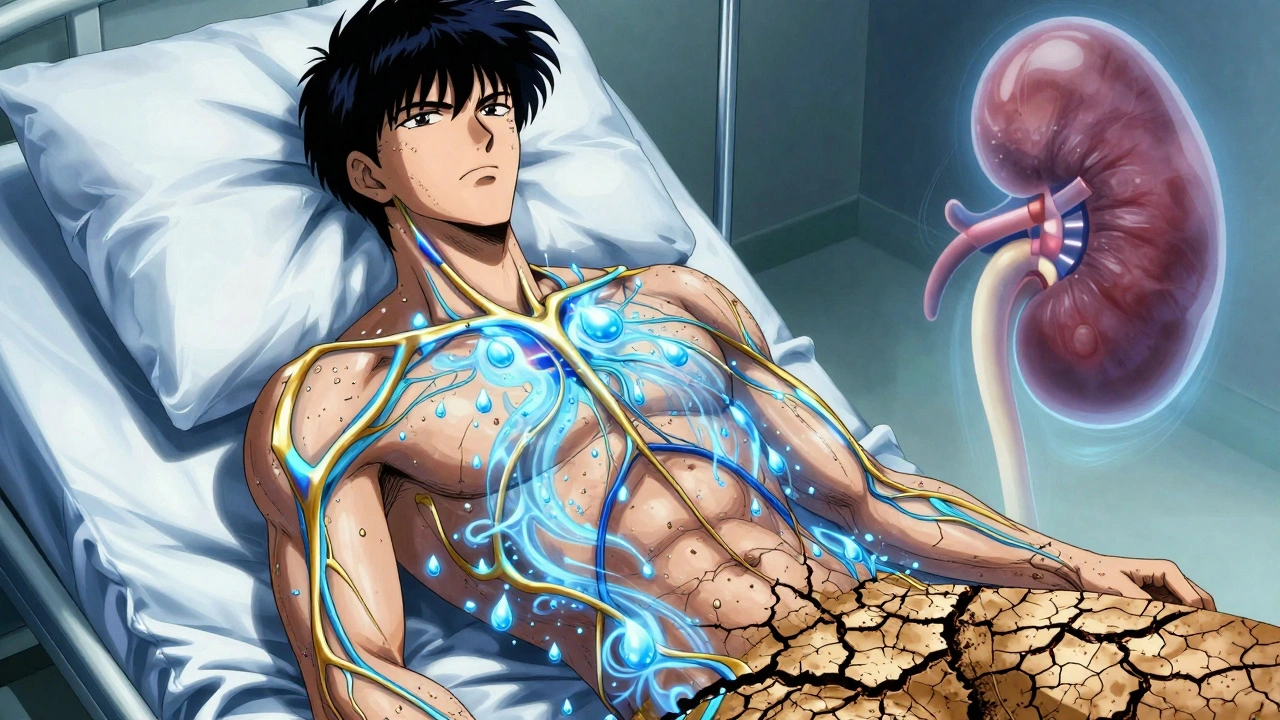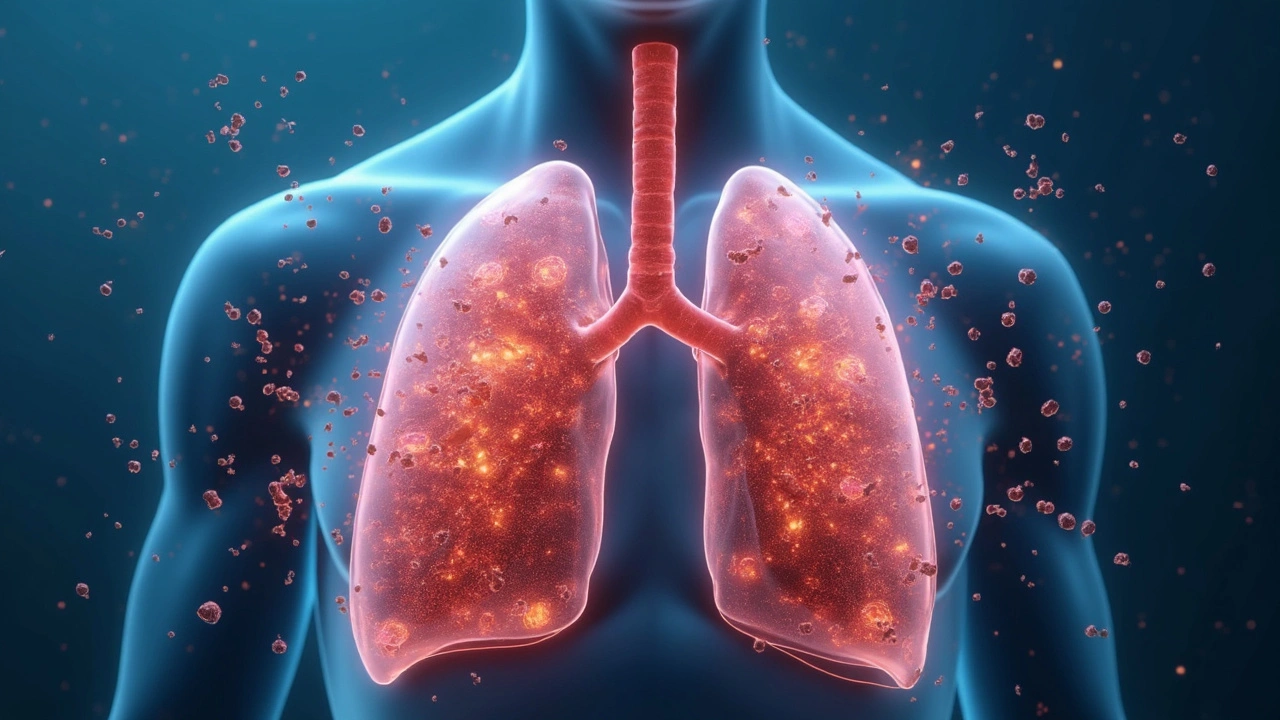Hyponatremia and hypernatremia are common, dangerous electrolyte disorders in kidney disease. Learn how kidney failure disrupts sodium balance, why diet restrictions can backfire, and how to avoid life-threatening mistakes in treatment.
Hyponatremia – What It Is and How to Handle Low Sodium
Hyponatremia means your blood sodium level is lower than normal. Sodium helps control fluid balance, nerve signals, and muscle function, so when it drops, you can feel off‑balance, confused, or even sick.
Common Causes of Hyponatremia
The most frequent triggers are drinking too much water, especially during intense exercise or hot weather. Your kidneys can't get rid of the excess water fast enough, and it dilutes sodium. Certain medications – like diuretics, antidepressants, and pain relievers – also make you lose more sodium than usual.
Medical conditions play a big role too. Heart failure, liver disease, and kidney problems can all cause your body to hold onto water, lowering sodium levels. Hormonal issues such as low thyroid or adrenal function (Addison’s disease) interfere with the hormones that regulate salt and water.
How to Treat and Prevent Low Sodium
If you suspect hyponatremia, the first step is to get a blood test. Doctors look at sodium concentration and may check urine output or hormone levels to find the root cause. Mild cases often improve by cutting back on excessive fluids and adjusting medications under supervision.
More serious drops need medical attention. Doctors might give saline IVs that raise sodium slowly, because raising it too fast can damage brain cells. In some situations, a medication called vasopressin antagonist helps your kidneys get rid of extra water without losing sodium.
Preventing hyponatremia is mostly about balance. During long workouts, sip electrolyte‑rich drinks instead of plain water. If you’re on diuretics, talk to your pharmacist about checking sodium levels regularly. Keep an eye on symptoms like headache, nausea, muscle cramps, or feeling unusually tired – they can be early warnings.
When to see a doctor? Any sudden confusion, seizures, or severe vomiting should trigger an emergency visit. For milder signs that last more than a day, schedule a check‑up so you can rule out hidden conditions like heart or liver disease.Remember, hyponatremia is usually fixable when caught early. Knowing the triggers and listening to your body are the best tools for staying safe.
Hyponatremia, a condition marked by low sodium levels, can have surprising ties to respiratory disorders. Discover why maintaining balanced sodium is crucial for lung health. Learn about the signs of low sodium levels and how they may contribute to or worsen breathing problems. Understand what causes hyponatremia and find out effective ways to manage it. This article explores the fascinating connection between sodium imbalance and respiratory issues.


